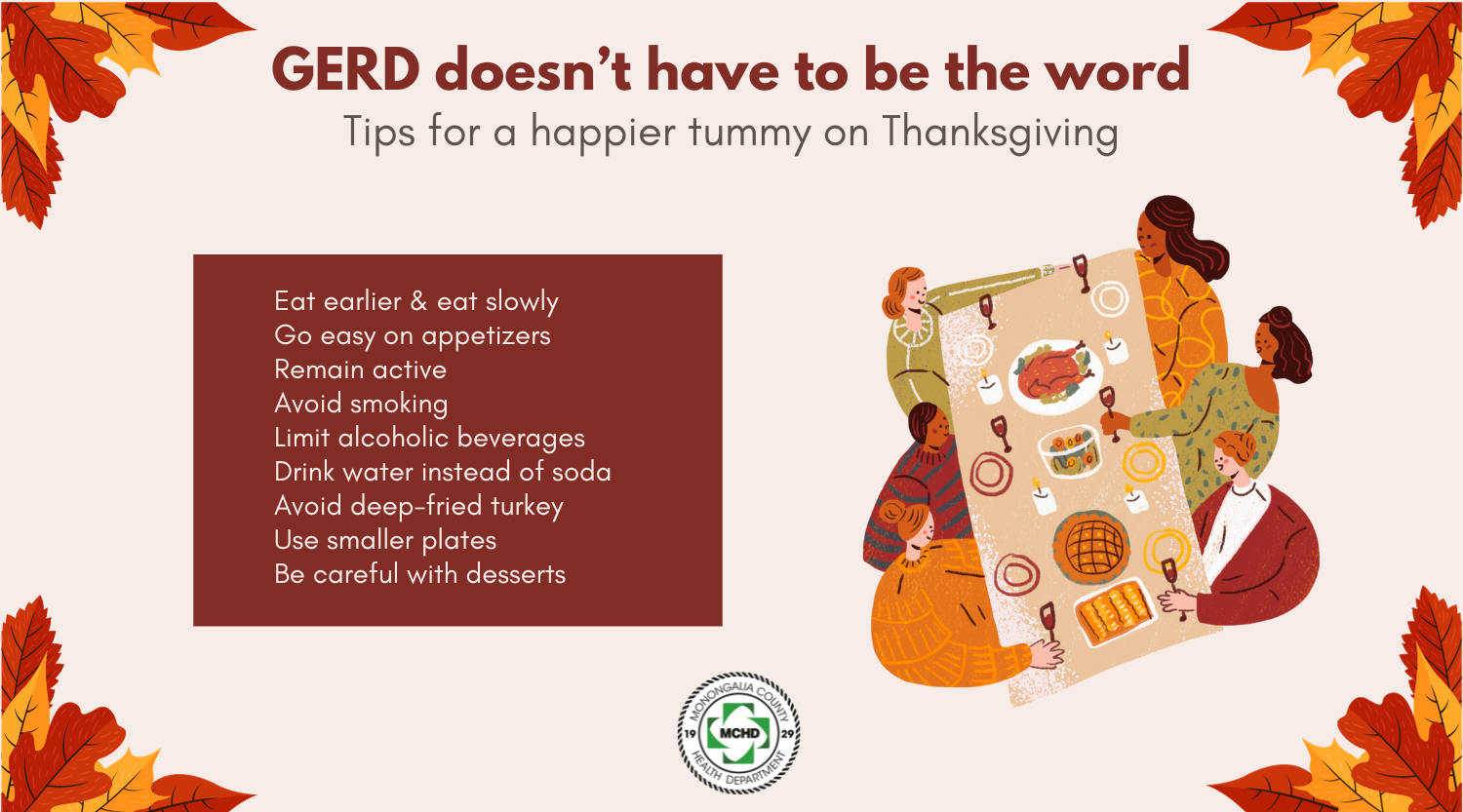GERD doesn't have to be the word: Tips for a happier tummy on Thanksgiving

Nov. 20, 2023
By Mary Wade Burnside
Happy GERD Awareness Week! Perhaps you have visions of turkey and stuffing and pumpkin pie dancing in your head.
That’s to be anticipated, but what’s also a likely outcome is that if you overindulge, you might not feel so great after your Thanksgiving meal.
GERD stands for gastroesophageal reflux disease, and the awareness week featuring its name began on Sunday.
Perhaps your one of the lucky ones who can pig out and feel no ill effects.
Maybe you’ve felt twinges of heartburn but you believe that it’s par for the course on a day dedicated to feasting.
Or maybe you are like me and have really suffered from the effects of this condition.
Whatever the case may be, it might be time to reconsider your approach to tackling your food this Thursday.
I’m happy that my GERD symptoms are under control now. If you have never experienced them, congratulations! You never want to let them get so bad.
During the worst of my symptoms, my esophagus felt like it was on fire, a burning line from my throat to my stomach.
I know what some people will say: Thanksgiving is that time of year when you’re supposed to stuff your face and then lie down on the couch in a turkey tryptophan haze.
To that, I say no, it doesn’t have to be that way, and besides, to avoid heartburn, you really don’t want to lie down right after a large meal.
According to the American Academy of Allergy Asthma and Immunology, GERD is a digestive disorder that occurs when stomach acid, or food and fluids, back up from the stomach into the esophagus. It can affect people of all ages, from infants to older adults.
In addition to heartburn and acid reflux, symptoms also can include a chronic sore throat, laryngitis or hoarseness and even a cough. In fact, I was first diagnosed with GERD by an ear, nose and throat (ENT) specialist because I had no idea that my symptoms were related to digestion.
The good news this time of year is that overall, the foods we tend to eat at Thanksgiving usually aren’t big triggers, including pumpkin pie (although, unfortunately, not chocolate).
The International Foundation for Gastrointestinal Disorders (IFFGD), which promotes GERD Awareness Week, offers some Thanksgiving-specific tips to help sufferers enjoy the day.
These include eating earlier, going easy on appetizers, remaining active (pre-meal Turkey Trot, anyone?), avoiding smoking, limiting alcoholic beverages, drinking water instead of soda, avoiding deep-fried turkey, using smaller plates, being careful with desserts and eating slowly.
Being more mindful while you eat will go a long way toward helping your digestion and also keeping you from overeating once you experience fullness.
As for seconds, try to wait after finishing your first plate to see if you really want more.
I also make choices about what I want to eat. There is no point in consuming a roll or a dish that you don’t really care for just because you think it’s part of your traditional feast. Make more room for the foods you really do enjoy.
If possible, taking a walk is a great after-meal activity.
For those with more chronic issues, you might want to consider your sleeping situation in general. If you have an adjustable bed, try raising it a bit so that your body gently slopes downward. If not, you can purchase a wedge that goes under your mattress to accomplish this as well. It also can help reduce snoring.
Here’s to a happy, healthy and GERD-free Thanksgiving to all.
Mary Wade Burnside is the public information officer at Monongalia County Health Department.